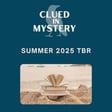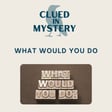
Catherine McKenzie/Catherine Mack
Mystery and thriller author Catherine McKenzie/Catherine Mack, author of recent What Would You Do episode feature Please Join Us (2022) and the popular Every Time I Go On Vacation, Someone Dies (2024) and its sequel No One Was Supposed to Die At This Wedding (2025) joins Brook and Sarah in today's episode to discuss writing thrillers, mysteries, and what makes a great story.
Discussed and mentioned
Please Join Us (2022) Catherine McKenzie
Every Time I Go on Vacation Someone Dies (2024) Catherine Mack
No One Was Supposed to Die at This Wedding (2025) Catherine Mack
For more about Catherine Mack/Catherine McKenzie
website: catherinemackauthor.com
Instagram: @catherinemckenzieauthor
X/Twitter: @CEMcKenzie1
Facebook: https://www.facebook.com/CatherineMcKenzieAuthor
Related episodes
What Would You Do: Please Join Us (released February 18, 2025)
For more information
Instagram: @cluedinmystery
Contact us: hello@cluedinmystery.com
Music: Signs To Nowhere by Shane Ivers – www.silvermansound.com
Sign up for our newsletter: https://cluedinmystery.com/clued-in-chronicle/
Join the Clued in Cartel for as little as $12 USD/year: https://cluedinmystery.com/clued-in-cartel/
For a full transcript, visit https://cluedinmystery.com/catherine-mckenzie/
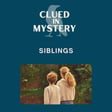

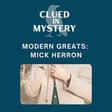
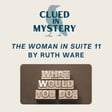
![[Bonus] Read Along: Daughter of Time image](https://media.zencastr.com/cdn-cgi/image/width=112,quality=85/image-files/61e1c276e3ec42007857cff9/b953ad72-c43e-48ca-a18a-b3c216ab90ee.jpg)
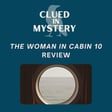
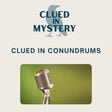
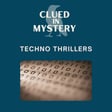
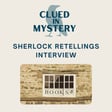
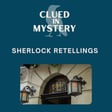
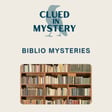
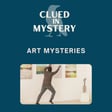
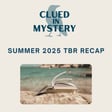
![[Bonus] Thursday Murder Club preview image](https://media.zencastr.com/cdn-cgi/image/width=112,quality=85/image-files/61e1c276e3ec42007857cff9/e51be644-e446-4d32-b89c-12bfc60d30e9.jpg)
![[Re-release] Hallmark Mysteries and More (part 2) image](https://media.zencastr.com/cdn-cgi/image/width=112,quality=85/image-files/61e1c276e3ec42007857cff9/edbc4a22-ebb8-42cb-b211-1f94f4cb920f.jpg)
![[Re-release] Golden Age Author: Ngaio Marsh image](https://media.zencastr.com/cdn-cgi/image/width=112,quality=85/image-files/61e1c276e3ec42007857cff9/782f9391-308c-4bad-9197-749bef7d8bd1.jpg)

![[Re-release] Hallmark Mysteries and More (part 1) image](https://media.zencastr.com/cdn-cgi/image/width=112,quality=85/image-files/61e1c276e3ec42007857cff9/57bb1653-1df6-4119-8a26-b354258d4329.jpg)
